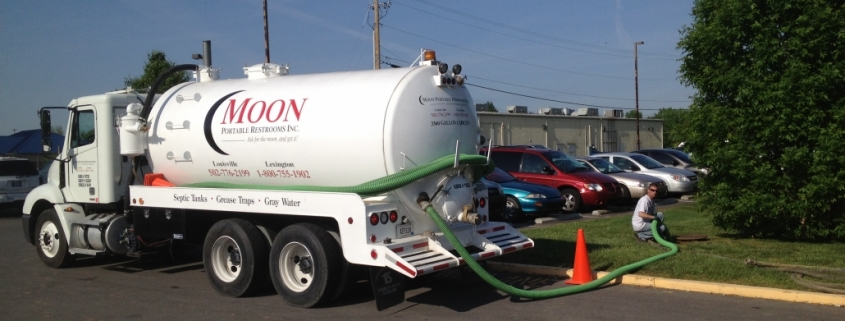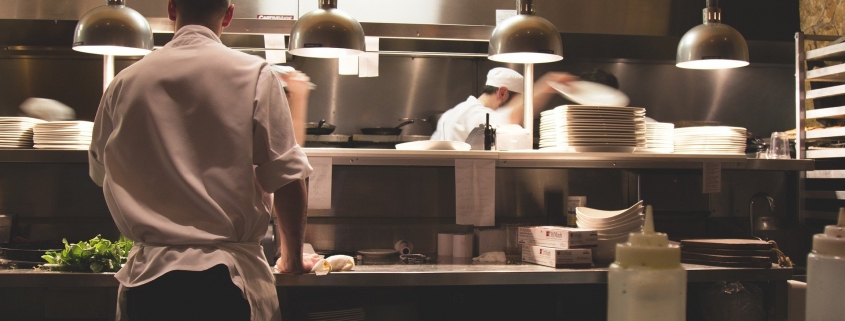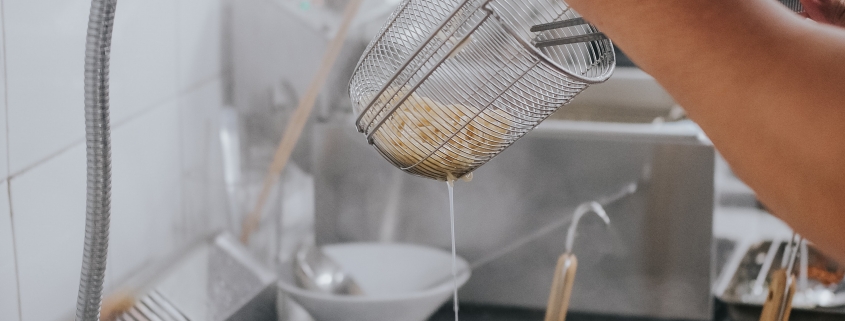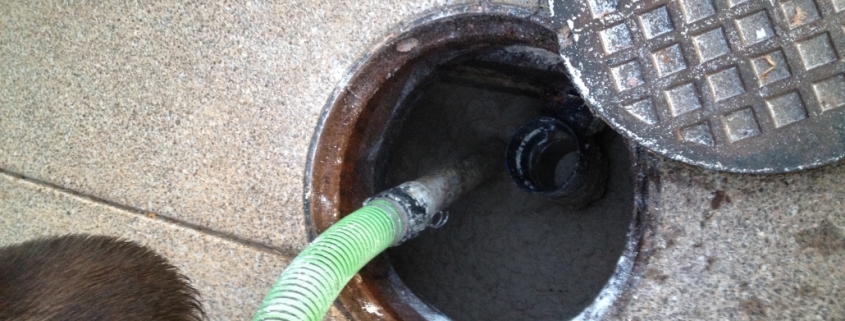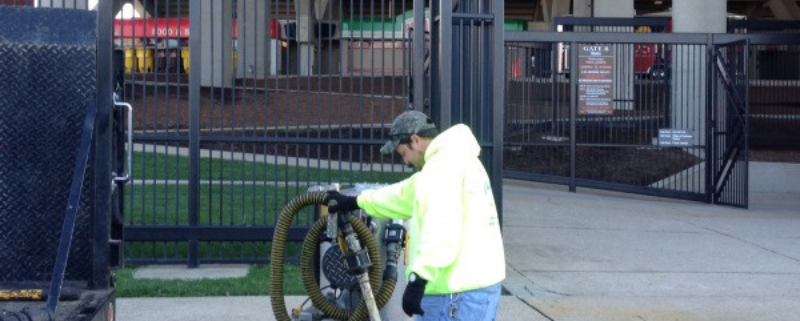Fats, oil, and grease (FOG) can clog up the sewer system like nothing else. As FOG escapes from kitchens and into the sewer lines and pump stations, grease coats pipes and systems. These blockages eventually can cause sewer overflows into homes and businesses, degrade the quality of water sources, and corrode pipes. That’s why cities implement best practices for grease traps and FOG rules. In Louisville, Kentucky, there are several Fats, Oils & Grease (FOG) Management Guidelines that all commercial kitchens must follow.
FOG Guidelines in Louisville
The Louisville/Jefferson County Metropolitan Sewer District (MSD) is a regional non-profit agency that monitors and maintains the wastewater treatment system in the metropolitan area. MSD has a significant amount of guidance and sets of rules related to FOG disposal. Food service establishments (FSEs) need to be in compliance with the FOG management guidelines MSD sets. These guidelines, which outline 17 points (excluding subpoints) can be found in a PDF available on the MSD website. However, for ease of access, we will be outlining 10 of the most important points here.
1. FSEs must use certified plumbers/haulers to manage FOG.
Grease traps and interceptors require specific cleaning. MSD requires FSEs to have certified plumbers/haulers perform cleaning and removal procedures. Moon Grease Trap Cleaning is one of the certified haulers for Louisville, KY and Lexington, KY. Certified plumbers/haulers go through MSD-led training to stay up to date with procedures. This is a safeguard and a seal of approval from the government that says we know how to correctly pump grease traps and interceptors, as well as how to safely dispose of the waste. These professionals are the people you should work closely with for your regular trap and interceptor maintenance and certification. MSD requires documentation of all cleanings and inspections too. Working with these professionals ensures that you will be up to code and have all of the paperwork you need in an organized fashion.
2. Grease Trap Cleaning and Maintenance Requirements
The frequency of grease trap cleanings in Louisville, KY should be consistent with the following requirements:
- Grease traps shall be cleaned of complete fats, oils, and grease and food solids by an approved MSD Certified Grease Waste Hauler monthly (minimum) OR
- If the FOG and food solids content of the grease trap is greater than 25% of the water depth capacity of the grease trap.
- If this the case, then the grease trap needs to be cleaned weekly or as frequently as needed to prevent surpassing 25%.
3. Grease Interceptor Cleaning and Maintenance Requirements
The frequency of grease interceptor cleanings in Louisville, KY should be consistent with the following requirements:
- Grease interceptors must be pumped-in-full by an approved MSD Certified Grease Waste Hauler when the total accumulations of surface FOG (including floating solids) and settled solids reaches twenty-five percent (25%) of the grease interceptor’s overall liquid depth.
- This is known as the 25% rule.
- At no time, shall the cleaning frequency of the grease interceptor exceed 90 days, unless approved by MSD.
- Some existing FSEs in Class 2 through 5 will need to consider a 30 day pumping frequency or a 60 day pumping frequency to meet the 25 Percent Rule requirement.
- Partial pump of interceptor contents or on-site pump & treatment of GI contents will not be allowed due to reintroduction of fats, oils and grease to the interceptor and pursuant.
4. Food establishments are classified by size and need to satisfy the grease trap size requirements of their class.
Depending on the type of establishment you run, MSD assigned a different FSE class. There are 5 classes with different minimum acceptable sizes of GCE:
- Class 1: 25 gallons per minute/50 pound grease trap if an exemption has not been granted by MSD.
- Delis
- Daycare Facilities
- Frozen Yogurt Ships
- Ice Cream Shops
- Beverage Bars
- Coffee Shops
- Mobile Food Vendors
- Class 2: 1,000 gallon grease trap or equivalent device which has been approved by the Kentucky Division of Plumbing and MSD.
- Limited-Service Restaurants
- Fast Food Facilities
- Catering Restaurants
- Grocery/Food Marts
- Class 3: 1,000 gallon Grease Interceptor or equivalent device which has been approved by the Kentucky Division of Plumbing and MSD.
- Full-Service Restaurants
- Class 4: 1,500 gallon Grease Interceptor or equivalent device which has been approved by the Kentucky Division of Plumbing and MSD.
- Buffets
- Cafeteria Facilities
Class 5: 2,000 gallon grease interceptor or two 1000 gallon grease interceptors installed in series or equivalent devices which has been approved by the Kentucky Division of Plumbing and MSD.
- Institutions
- Schools
- Hospitals
- Prisons
IMPORTANT NOTES:
- Grease interceptor capacity should not exceed 2,000 gallons for each interceptor tank. In the event that the grease interceptor calculated capacity needs to exceed 2,000 gallons, the FSE shall install an additional interceptor of the appropriate size.
- If FSEs need more than one interceptors, then they need to be installed in such a manner to ensure positive flow between the tanks at all times. Therefore, tanks shall be installed so that the inlet invert of each successive tank shall be a minimum of 2 inches below the outlet invert of the preceding tank.
- Grease interceptors that are installed in series shall include adaptors, gaskets or flexible transition couplings of minimum of schedule 40 PVC pipe.
5. Pipes and sewer lines need to be separate from each other.
Kitchen process lines and sanitary lines may combine prior to entering the public sewer ONLY AFTER passing through the grease control equipment.
Sanitary wastewater, or black water, cannot be connected to grease control equipment.
6. Coffee shops have additional regulations.
Coffee shops do not get exemptions due to the pH of wastewater. They will also be required to install polyethylene, plastic or fiberglass under 25 gallon per minute/50 lb capacity sink grease traps on 3-compartment sinks.
7. Compliance deadlines have a 6-month or less timestamp.
FSEs with existing substandard or undersized grease control equipment will get a written notice of deficiency from MSD. Compliance deadlines will not exceed more than 6 months.
8. There are several important prohibitions.
Prohibited actions by FSEs to avoid contributing to the MSD collection system include:
- Running hot water continuously through grease control equipment
- Discharge concentrated alkaline or acidic solutions into grease control equipment
- Discharge of concentrated detergents into grease control equipment
- Use additives for grease management
- Additives are any products that contain solvents, acids, bacteria, enzymes, emulsifiers, and other similar ingredients. They have the potential to contribute to FOG buildup and interference with MSD systems. This is especially problematic if you use them right before liquids go into grease traps or interceptors.
There are a few exceptions here. You can use additives to clean drain lines, but only in amounts and ways such that FOGs won’t be put into the sewer system or that FOGs will be temporarily broken down and allowed to pass through grease traps and interceptors. Additionally, 100% bacteria additives are allowed to be used, but you need to get MSD approval first. Always check with MSD before using any additives you think may be allowable.
9. FSEs shall observe Best Management Practices (BMPs) for controlling the discharge of FOG from their facility.
The Best Management Practices include:
- Keep Grease out of kitchen drains by collecting and rendering yellow grease in a recycling bin that a permitted waste hauler can accept.
- Scrape grease and food solids from plates and cookware before washing.
- Use strainers in the sink and floor drains to prevent large food particles from entering internal plumbing and public sewers.
- Never pour grease, dairy products, syrups, icings, batters, or gravies into floor drains or mop sinks.
- Wipe up grease spills with paper towels or absorbents before using water.
- Have your Grease Control Equipment cleaned on the proper frequency by a Certified Hauler.
- Educate and train employees on all kitchen Best Management Practices.
10. MSD has the right of entry for inspection and monitoring of grease control equipment.
MSD retains the right to enter the premises of restaurants and kitchens to determine whether the FSE is complying with MSD policy. FSEs must allow MSD personnel full access to all parts of the premises for the purpose of inspection, monitoring, and/or records examination after presenting their credentials. Furthermore, unreasonable delays in allowing MSD personnel access to the FSE premises will result in a violation of the Wastewater/Stormwater Discharge Regulations and FOG Guidelines.
Keep Up to Date With MSD Guidelines in Louisville, KY with Moon Grease Trap Cleaning
There are plenty of other requirements a restaurant and a certified grease hauler need to satisfy in Louisville, KY. Since we need to know the best practices and certification needs, Moon Grease Trap Cleaning has knowledgeable experts who will make sure your FSE is up to code. Schedule your next grease service by contacting Moon Grease Trap Cleaning at 502-776-2199! We are happy to answer any and all questions you may have!
Moon Companies
Moon Grease Trap Cleaning is a part of Moon Companies. We offer a wide variety of trade services for the citizens and businesses of Louisville, KY, Southern Indiana, and the surrounding areas.
- Shipping Container Rentals: For those looking to buy or rent new or used shipping containers, Moon Trailer Leasing has a large selection of one-trip Conex boxes, as well as pre-fabricated portable offices.
- Portapotty Rentals: Rent out restrooms, luxury bathroom trailers, commercial shower trailers, and handwashing stations from Moon Portable Restrooms for your next construction site or outdoor event.
- Dumpster Rentals: Moon Mini Dumpsters delivers roll-off dumpsters directly to your home or business and then hauls away your trash for you.
- Refrigerated Container Rentals: For refrigerated containers rentals in Louisville, KY, contact Moon Refrigeration about our ready-to-go reefer containers.
- Portable Storage Units: Go Minis KY is a premier storage choice that offers an onsite storage, location-to-location moving services, and secure warehouse storage
- Grease Trap and Interceptor Cleaning: Keep your restaurant up to regulation and schedule your restaurant’s grease trap cleanings with Moon Grease Trap Cleaning.
Call us today at
502-776-2199 to learn more or schedule your service!

